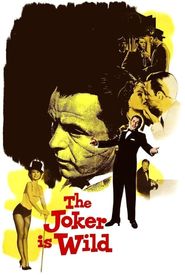Karoly Vidor spent the First World War as a lieutenant in the Austro-Hungarian infantry.
After the armistice, he moved to Berlin and worked for the German film company Ufa, as an editor and assistant director.
In 1924, he emigrated to the U.S. and earned his living as a singer in Broadway choruses and with a Wagnerian troupe.
He accumulated the means to finance his own project, an experimental short film entitled The Bridge (1929).
On the strength of this, he was signed by MGM to co-direct his first feature film The Mask of Fu Manchu (1932).
Vidor worked with relatively undistinguished material at various studios, notably RKO (1935) and Paramount (1936-37).
In 1939, he joined Columbia, where he remained under contract until 1948.
Vidor's career is something of an enigma, with a variable output.
He directed a good-looking but stodgy romance, The Swan (1956),and the interminably dull remake of A Farewell to Arms (1957).
On the other side of the ledger is the lavish showbiz biopic of singer Ruth Etting, Love Me or Leave Me (1955),for which Vidor elicited powerhouse performances from his stars Doris Day and James Cagney.
He also directed Frank Sinatra in The Joker Is Wild (1957),which gave one of his best performances as nightclub entertainer Joe E. Lewis.
Other Vidor standouts are Ladies in Retirement (1941),a gothic Victorian thriller, and two Rita Hayworth vehicles, the breezy musical Cover Girl (1944),and Vidor's principal masterpiece, the archetypal film noir Gilda (1946).
The film has an undeniably electric atmosphere, largely due to the chemistry between the three leads.
In 1948, Vidor fell out with studio boss Harry Cohn, taking him to court for alleged verbal abuse and exploitation.
He wanted out of his contract and sensed opportunities in working at a more prestigious studio.
Cohn wasn't going to let him go quietly, and the case was eventually settled.
Vidor died before completing the Liszt biopic Song Without End (1960),which was eventually finished by George Cukor.

















































